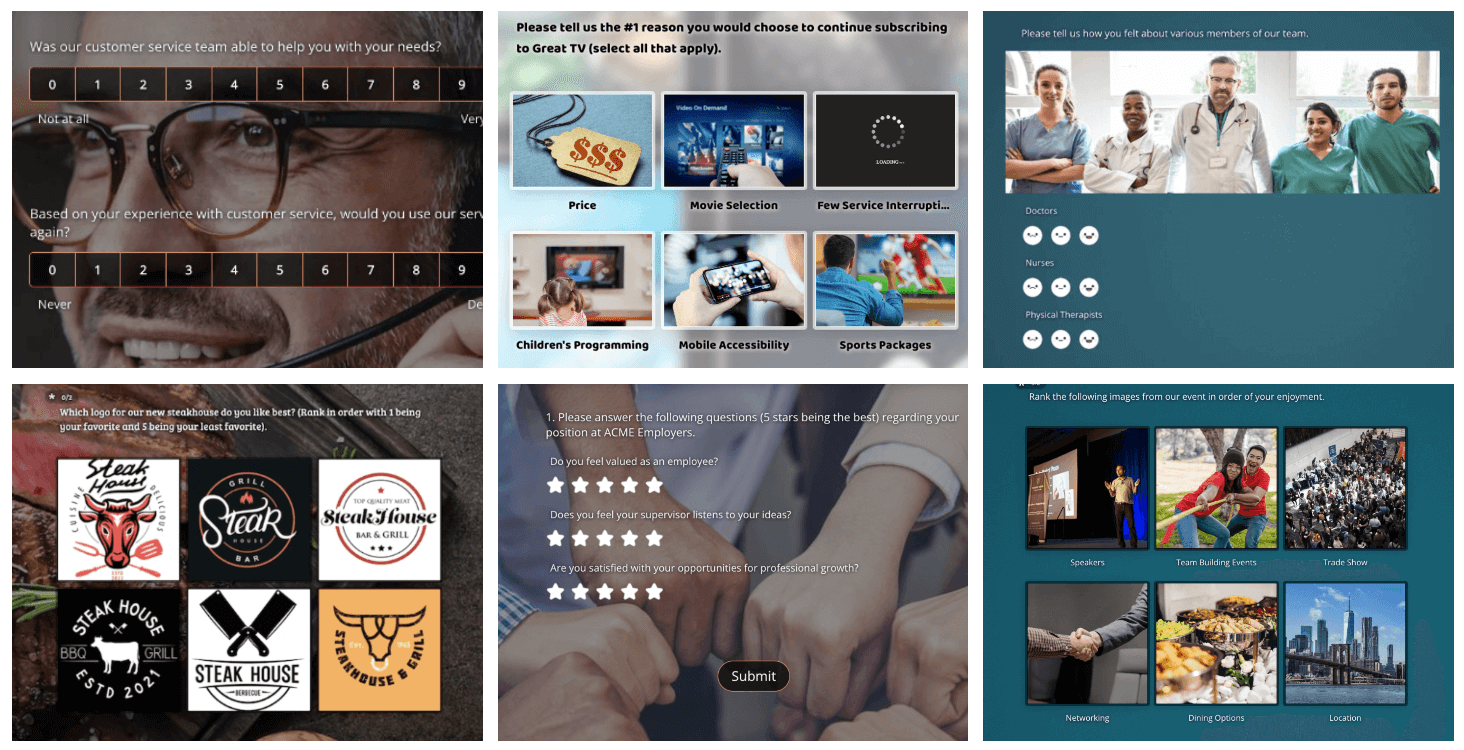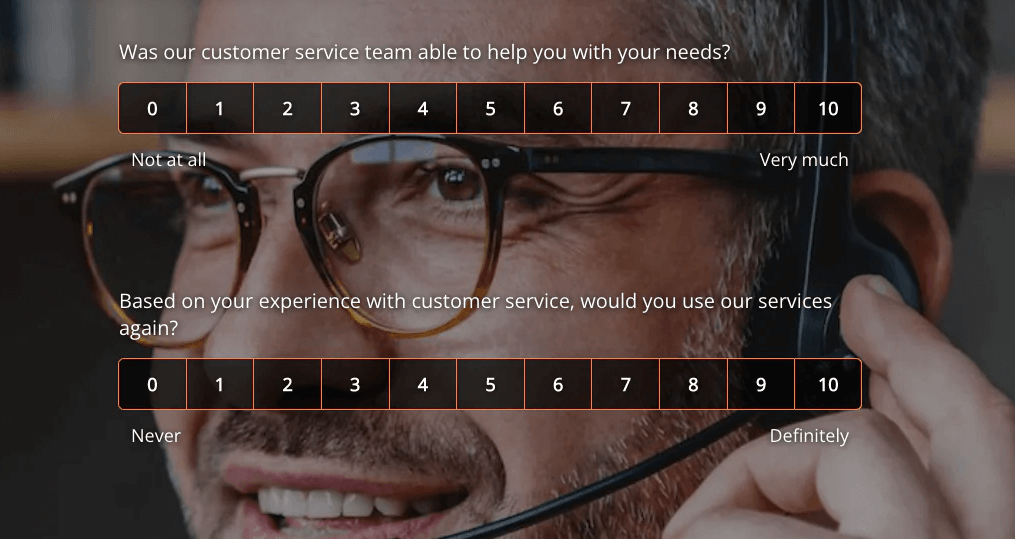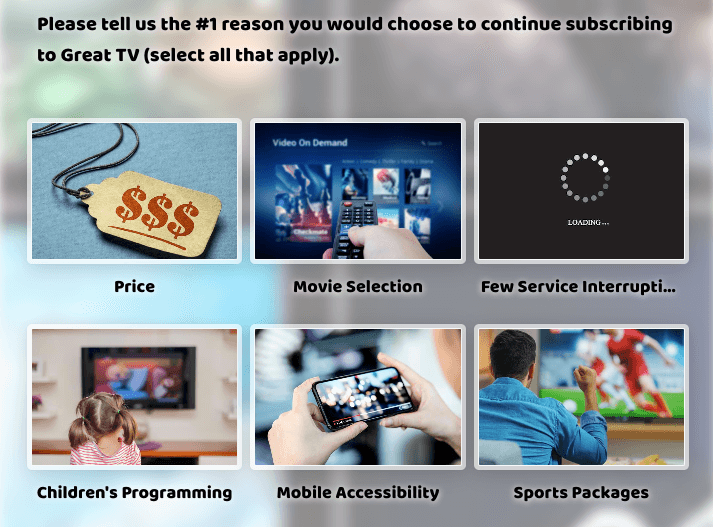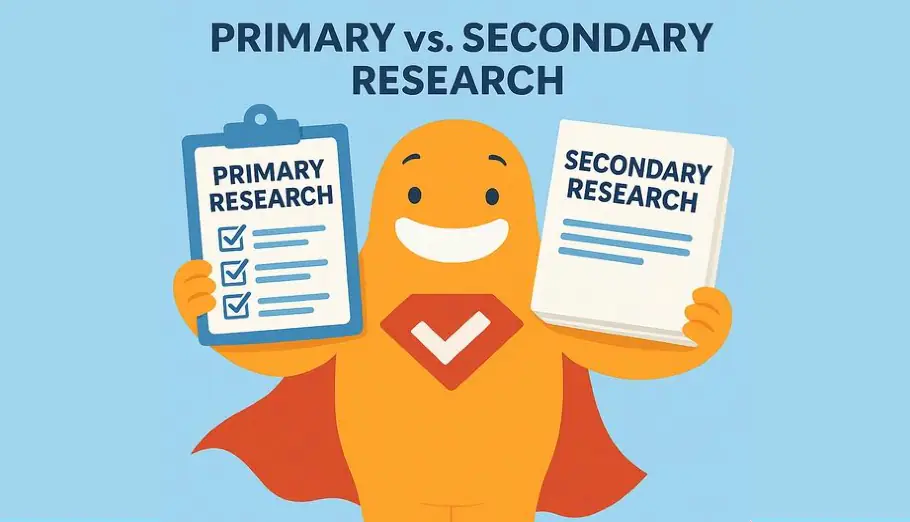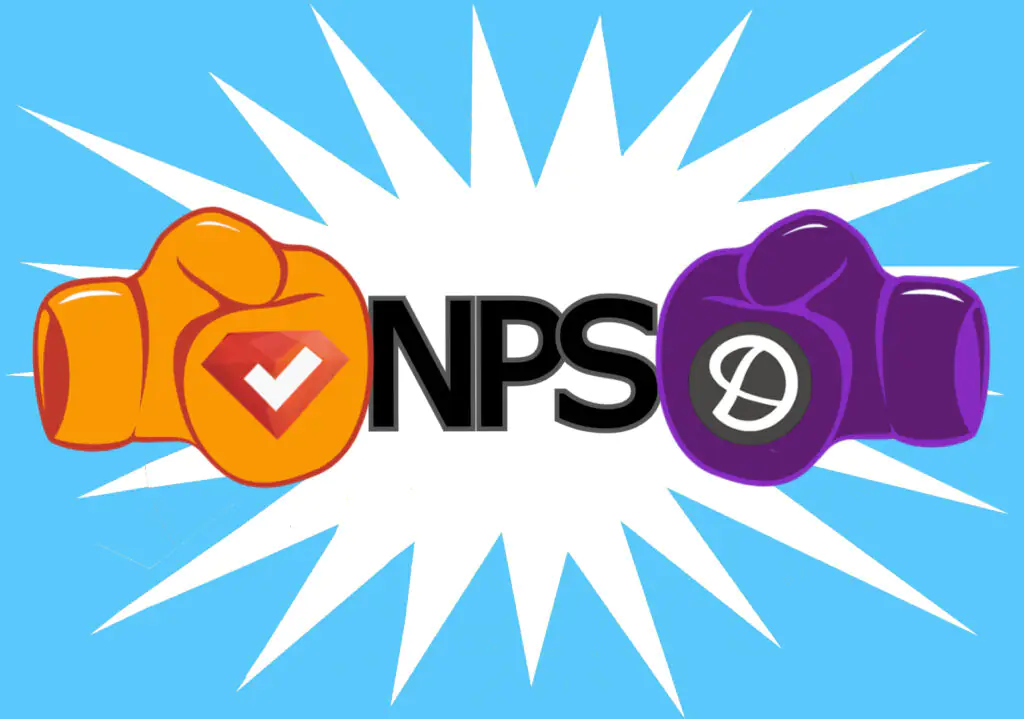Businesses both big and small often rely on surveys to gather information from customers, non-customers, and employees. Many business surveys have different goals; for example, one survey may ask participants about their familiarity with particular brands, while another may ask customers how they can improve in order to increase customer satisfaction and loyalty. In this blog, we’ll look at different types of business surveys, business survey questions, and more.
Create your business survey, form, or poll now!
What is a Business Survey?
A business survey is a research tool that companies use to collect data from various audiences. It consists of a series of close ended and/or open ended questions about any number of topics. Surveys can be conducted in a number of ways, from telephone surveys to focus groups. Today, of course, online surveys are one of the most popular ways of conducting a business survey because they’re inexpensive, easy to use, and have a wide reach. Kiosk surveys, in which a touchscreen device asking for feedback at entryways or the point of purchase, are also very popular.
Types of Business Surveys That Inform Decision Making
There are many different types of business surveys. Here’s a look at some of the most popular business surveys that inform decision making, along with business survey examples with images created using SurveyLegend.
1. Customer Surveys
A customer survey is one of the most important types of business surveys. Customer surveys help companies understand if customers are satisfied with their product or service and what type of improvements could be made to turn customers into brand ambassadors.
Many customer-facing business surveys aim to determine a Net Promoter Score (NPS). An NPS is a customer loyalty metric that predicts the likelihood of a customer repurchasing from you or referring your company to a friend or colleague; NPS surveys aim to determine the score by looking at brand promoters, detractors, and passives.
Questions you may consider asking on customer surveys include:
- How likely are you to recommend us to friends or colleagues?
- Would you say you had a positive customer experience?
- Will you be purchasing from us again?
- Were you satisfied with the shipping speed of your product?
- Did you find our website easy to navigate?
Check out our business survey template for customer satisfaction surveys.
2. Market Research Surveys
This business survey is designed to collect information about the preferences of the target market. They generally ask a series of demographic questions and then dive into people’s needs and wants, behaviors, and purchasing power.
Market research surveys are useful for companies forming marketing strategies for new and existing products and services. The research gathered is also helpful for informing business decisions, as company leaders can rely on actual data from their target audience versus assumptions and guesses. For these reasons, market research surveys are sometimes considered “the flashlight in the dark.”
Questions you may consider asking on market research surveys include:
- What is your age/race/level of education/marital status/etc.
- Why did you choose our product or service?
- Did you consider purchasing from one of our competitors?
- Is there anything you feel our competitors do better than us?
- What is your monthly shopping budget?
Check out our business survey template for market research surveys.
3. Product and Service Evaluation Surveys
Having customers evaluate your products and services allows you to better understand their expectations, needs, and more. Product and service evaluation surveys can dive into many areas, for example packaging, pricing, promotions, and so on. Companies that listen to customers also drive innovation. For example, McDonalds’ customer surveys were showing that more and more people were concerned with the fast food chain offering single-use plastic straws (1.8 million of them globally per day). In response, McDonald’s began using sustainable paper straws, rolling them out in the United Kingdom with plans to introduce them in other countries.
Questions you may consider asking on product and service evaluation surveys include:
- How satisfied were you with our product or service?
- Are there any features that can be added or improved upon?
- Do you feel our product or service is fairly priced for the value?
- Did our customer service team make you feel valued?
- Do you have any suggestions/comments to help us serve you better?
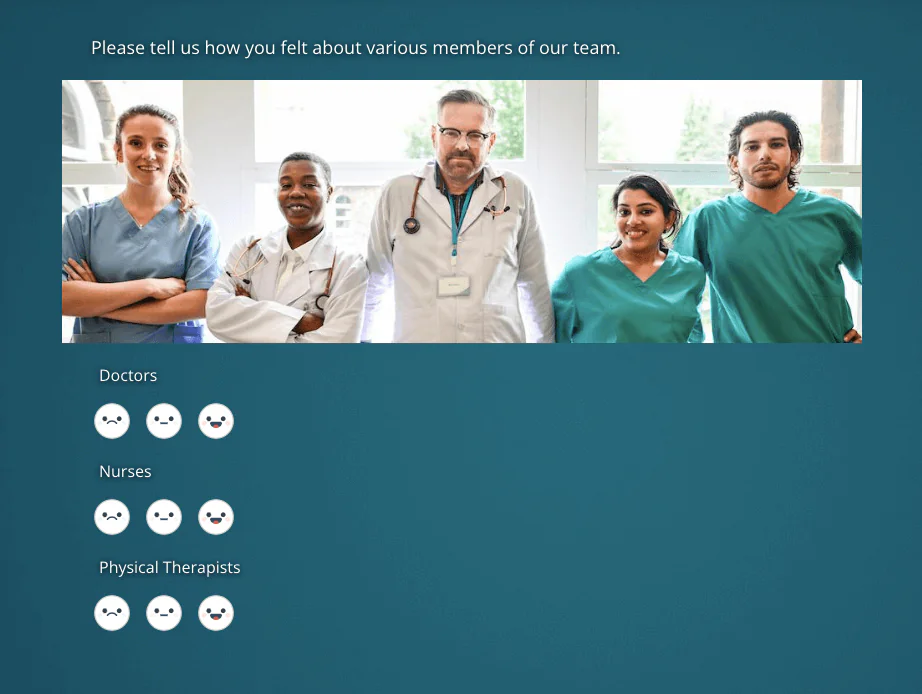 Check out our business survey template for product/service evaluation surveys.
Check out our business survey template for product/service evaluation surveys.
4. Design and Branding Surveys
Sometimes, company leaders become so enthralled with their products, designs, packages, etc., they fail to see what the public sees as obvious flaws. Other times, when developing a brand identity, they simply need the public’s opinion on which brand name, tagline, typeface, logo, colors, or graphic design is best (this also comes into play with rebranding efforts).
Of course, for product design and branding surveys, it’s almost imperative to include visuals, so a survey with images is a must. After all, trying to explain a logo, product, and so on is very difficult without a corresponding visual.
Questions you may consider asking on design and branding surveys include:
- Do you think the design of this product is well executed?
- How would you rate the packaging used to house this product?
- Which logo to you prefer?
- Rank these taglines in order from most to least favorite.
- If our brand was a person, what type of car would it drive?
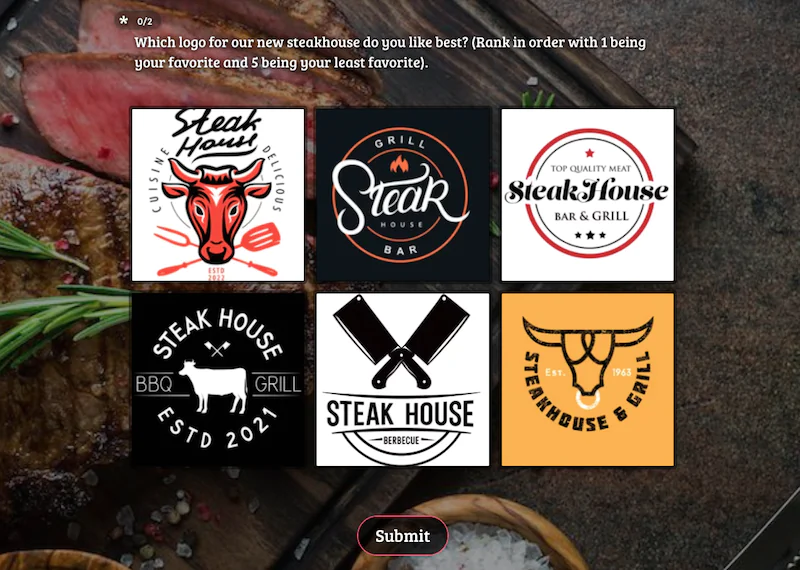 Check out our business survey template for design and branding surveys.
Check out our business survey template for design and branding surveys.
5. Event Surveys
Organizing a successful event, whether it’s a business conference, seminar, or trade show, is not an easy task. The best way to help ensure you put on an event that attendees will enjoy is to actively engage them in the planning of the event (what they expect, what they hope for, thoughts on venue/location, etc.).
Of course, event surveys don’t stop there. Many companies also survey attendees at the actual event to keep them engaged and collect feedback in real-time. They often do this using a kiosk or computer station in the event area or through mobile surveys that, in a matter of seconds using live analytics, display the results on a large screen to create excitement.
Finally, it’s important to collect additional feedback once the event is over. Obtaining feedback from attendees is a crucial step for gaining an accurate assessment of your event’s strengths and weaknesses.
Pre-event questions you may consider asking on event surveys include:
- Will you be attending our upcoming [conference, seminar, etc.)?
- Have you attended a previous event?
- Do you prefer to attend events in person or virtually?
- Is there anything in particular you’d like to learn at this event? Any particular speakers you’d like to hear from?
- What are you looking forward to the most about this event?
Post-event questions you may consider asking on event surveys include:
- How would you rate this event overall?
- Did you find the content presented valuable?
- What is the one thing you enjoyed most about this event?
- Would you recommend this event to a friend or colleague?
- Is there anything you would have us improve for the next event?
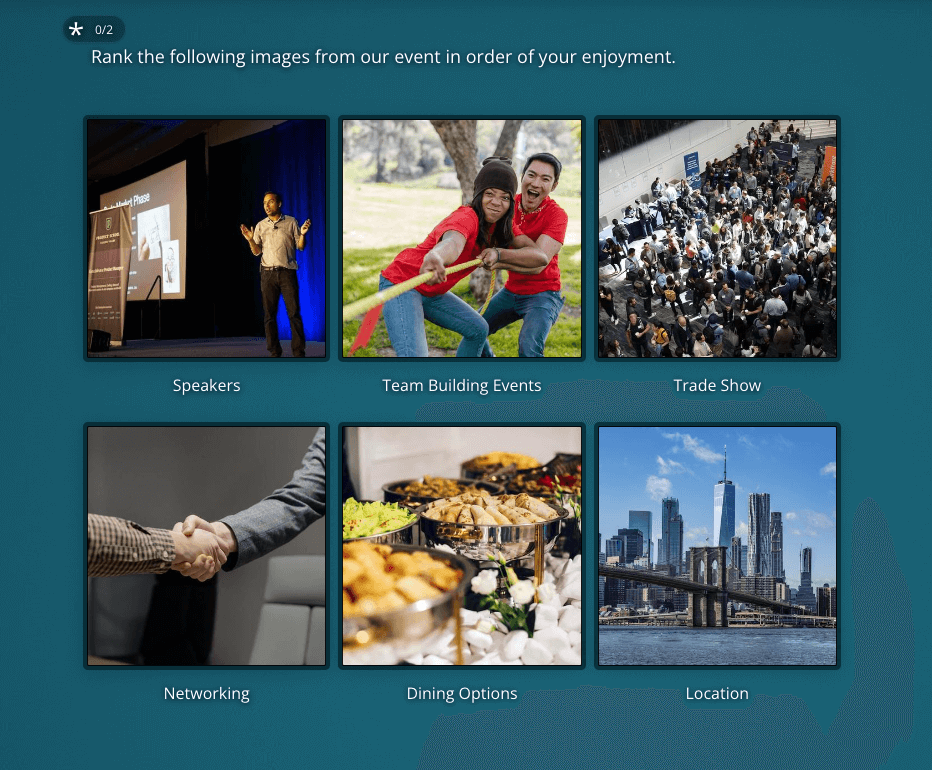 Check out our business survey template for event surveys.
Check out our business survey template for event surveys.
6. Employee Engagement Surveys
While about half of American workers are satisfied with their jobs, the other half is either only somewhat satisfied, dissatisfied, or very dissatisfied. Of course, a happy workplace is a more productive workplace, so it’s just as important for companies to survey employees as it is to survey consumers. By surveying employees, you let them know that you value their opinions and want their voices to be heard.
Questions you may consider asking on a company survey for employees include:
- Overall, how satisfied are you with your career?
- Do you feel valued as an employee?
- Are you satisfied with your benefits package?
- Do you prefer on-site or remote work?
- Are you satisfied with your current level of pay?
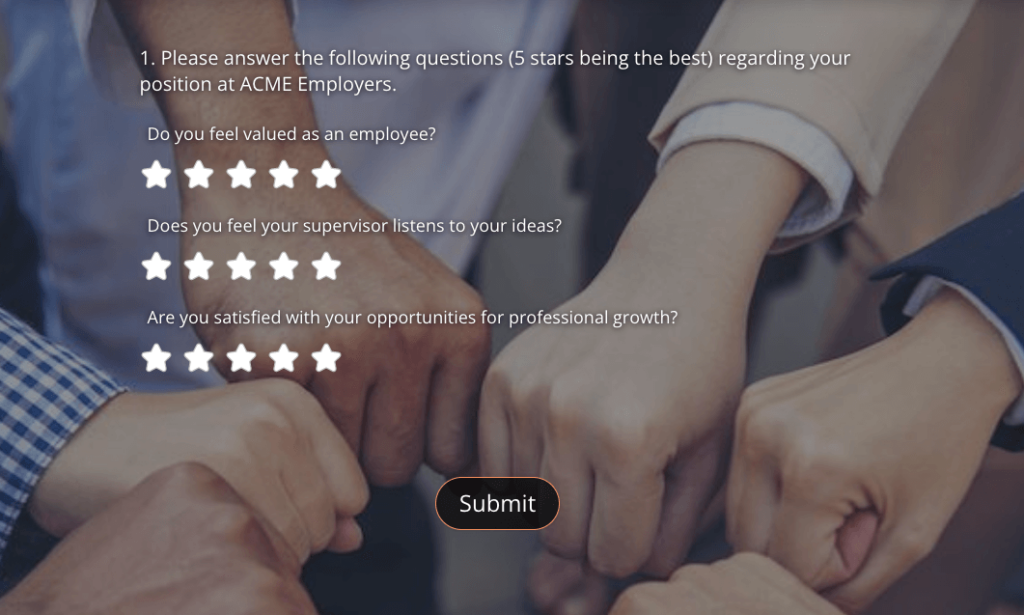 Check out our business survey template for employee engagement surveys.
Check out our business survey template for employee engagement surveys.
Conclusion
In an increasingly competitive environment, one in which the customer experience is now king, it’s critical for companies to conduct business surveys to collect feedback and opinions from the general public, customers, and employees. Thankfully, there are many business survey tools available, such as SurveyLegend.
SurveyLegend is a free online survey maker that allows you to ask a wide variety of survey questions, from multiple choice to ranking questions, sliders to star ratings. Plus, many of our templates come with business survey questions already plugged in! Otherwise, it’s easy enough to create your own questions and then add images to them as you’ve seen in the examples throughout this blog.
Whether you’re conducting small business surveys or are a Fortune 500 company, SurveyLegend is here for all your surveying needs.
Do you regularly conduct business surveys to inform decision making? Which type of business survey do you use most often? We’d love to hear from you in the comments!
Create your business survey, form, or poll now!
Frequently Asked Questions (FAQs)
The most common business surveys are customer surveys (NPS), market research surveys, product/service evaluation surveys, event surveys, employee surveys.
If you don’t engage with consumers, customers, and employees, you’re operating in the dark. Collecting feedback from these three groups can help you to improve your business, grow your customer base, outshine the competition, and increase employee productivity and retention.
SurveyLegend, the popular free survey maker with images, has templates for all of the most common types of business surveys.
